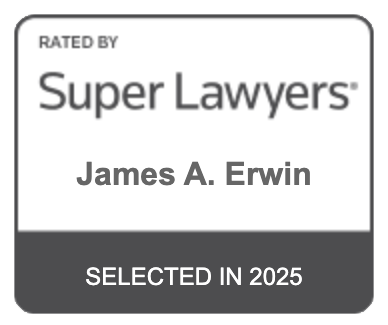#ErwinLawAnswers
Those in the real estate business generally have a passing familiarity with the two most common chapters of bankruptcy that are filed: Chapter 7 and Chapter 13. Chapter 7 bankruptcy is a liquidation, and allows a debtor to obtain a discharge of secured and unsecured debts. Outstanding liens, however, survive a bankruptcy discharge. Chapter 13 is a repayment plan, where the debtor uses future income to pay past unsecured and secured debts.
However, it is foolhardy to assume that a debtor's election to proceed under Chapter 13 will necessarily result in some sort of repayment. To the unfamiliar, a Chapter 13 plan is a cumbersome document that could negatively impact one's rights. A Chapter 13 plan must treat all of a debtor's creditors, both secured and unsecured. Treatment, however, does not necessarily mean full payment.
Because a debtor is voluntarily entering into a repayment plan, the debtor has a choice of treating different creditors differently, as long as such treatment complies with the Bankruptcy Code. Creditors have claims against a debtor. A Chapter 13 debtor can opt to treat a claim by paying the claim in full, surrendering the secured collateral to the holder of the claim, or even by modifying a claim.
Assuming that a debtor wants to treat a claim by full payment, the failure of a creditor to file the appropriate claim with the bankruptcy court could result in a reduced payment, even though a lien remains on the secured collateral. This could result in delayed payments to the creditor for up to five years.
Conversely, should a debtor choose to treat a claim by surrendering the collateral, the surrender cannot be effectuated without further approval by the bankruptcy court.
What’s more, a debtor could potentially modify a claim to the detriment of a creditor, resulting in delayed or reduced payment that is binding upon the creditor. Failure to timely object can result in the implied acceptance of potentially negative terms.
The experienced professionals at Erwin Law can help you navigate the treatment of your claims in a bankruptcy repayment plan and determine the best courses of action to achieve your objectives. For more information, please call us at (773) 525-0153.

All materials herein have been prepared by Erwin Law for informational purposes only and are not legal advice. Transmission of the information is not intended to create, and receipt does not constitute, an attorney-client relationship between you and the rm. You should not act upon this information without seeking professional counsel.
Copyright © 2025 Erwin Law. All Rights Reserved.